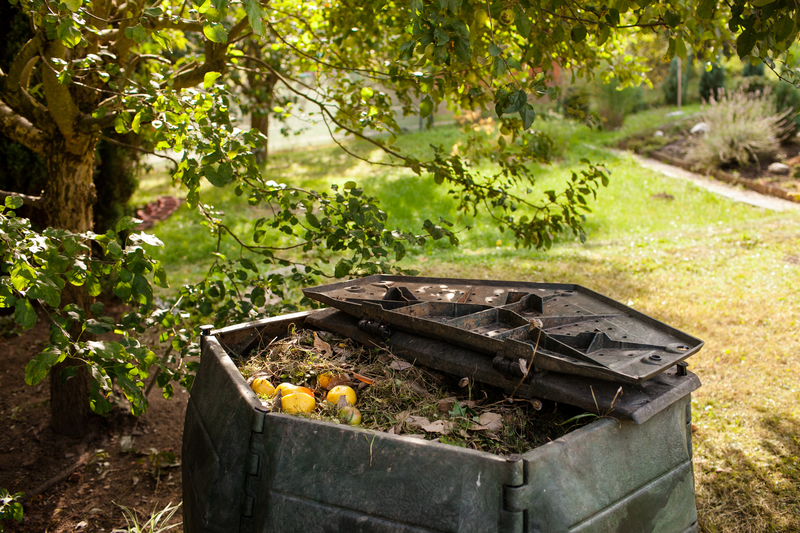The impact of technological advancements on modernizing the recycling process in the UK.
Posted on 17/09/2024
The Importance of Recycling in the UK
The United Kingdom (UK) has one of the highest recycling rates in the world, with an average recycling rate of 45%. This is a significant improvement from just a decade ago when the average recycling rate was at 40%. However, with the threat of climate change and environmental degradation looming over us, there is an ever-growing need for more efficient and sustainable waste management practices. In recent years, technological advancements have played a pivotal role in modernizing the recycling process in the UK. Let's delve deeper into how these advancements have impacted the country's recycling efforts.

The Role of Technology in Recycling Process
From sorting and processing to tracking and monitoring, technology has transformed every aspect of the recycling process. One of the major advancements is in sorting technologies, which have made it possible to separate different types of materials quickly and accurately. This not only increases efficiency but also reduces contamination, making it easier to recycle high-quality materials. For instance, optical sorters use infrared sensors to identify and sort different types of plastics based on their chemical composition.
Moreover, advanced waste tracking systems have also been implemented in some areas in the UK. These systems use Radio Frequency Identification (RFID) tags to track recyclable materials from collection to processing. This helps authorities keep a record of waste management processes and make necessary improvements for better results.
Furthermore, innovations like smart bins and waste collection vehicles equipped with sensors have greatly improved the efficiency of waste collection. These sensors can detect when bins are full, optimizing routes for collection vehicles and reducing unnecessary trips. This not only saves time and resources but also reduces carbon emissions.
Lastly, technological advancements have also resulted in new ways to recycle previously non-recyclable materials. For example, plastic bottles can now be recycled into clothing materials such as polyester fleece or turned into biofuel. This not only diverts waste from landfills but also creates new economic opportunities.
The Pros and Cons of Technological Advancements in Recycling
Like all things, technological advancements in recycling have their pros and cons. On the positive side, these advancements have greatly improved the efficiency and accuracy of the recycling process. They have also opened up new avenues for recycling and promoting a circular economy. Additionally, technology has made it easier for people to participate in recycling efforts through the use of smart bins and waste tracking systems.
However, there are also concerns about the environmental impact of some of these technologies. For instance, optical sorters may use energy-intensive processes, and RFID tags in waste management systems may release harmful chemicals when incinerated or end up in landfills. Furthermore, there is a worry that relying too heavily on technology may lead to complacency in proper waste management practices among individuals.
Tips to Promote Sustainable Recycling Practices
While technological advancements play a critical role in modernizing the recycling process, individuals must also do their part in promoting sustainable waste management practices. Here are some tips to follow:
1. Educate yourself about what can and cannot be recycled. The wrong items can contaminate recyclable materials and make them non-recyclable.
2. Clean your recyclables before placing them into designated bins.
3. Reduce your consumption by opting for reusable items whenever possible.
4. Donate or repurpose items instead of throwing them away.
5. Support local businesses that promote sustainable packaging and waste management practices.
6. Join community clean-up efforts or volunteer at recycling facilities.

Key Takeaways
In conclusion, technological advancements have had a significant impact on modernizing the recycling process in the UK. They have increased efficiency, accuracy, and created new opportunities for recycling previously non-recyclable materials. However, it is crucial to strike a balance between relying on technology and individual efforts to achieve sustainable waste management. As individuals, we must continue to do our part in promoting responsible consumption and proper disposal of waste to build a cleaner and greener future for all.
Conclusion
The continuous advancement of technology brings hope for more efficient and sustainable waste management practices in the UK. It has transformed the recycling process from a tedious and time-consuming task into an organized and precise process. However, it is essential to keep in mind the potential environmental impacts of these technologies and strike a balance between technology and individual efforts towards a greener future. Let us embrace these advancements while also continuing to promote responsible waste management practices to make a positive impact on our environment.
Latest Posts
Camden Living: What Residents Say
Camden Housing Market Insights
Get Lost in Camden: An Adventure in London's Picturesque Borough





